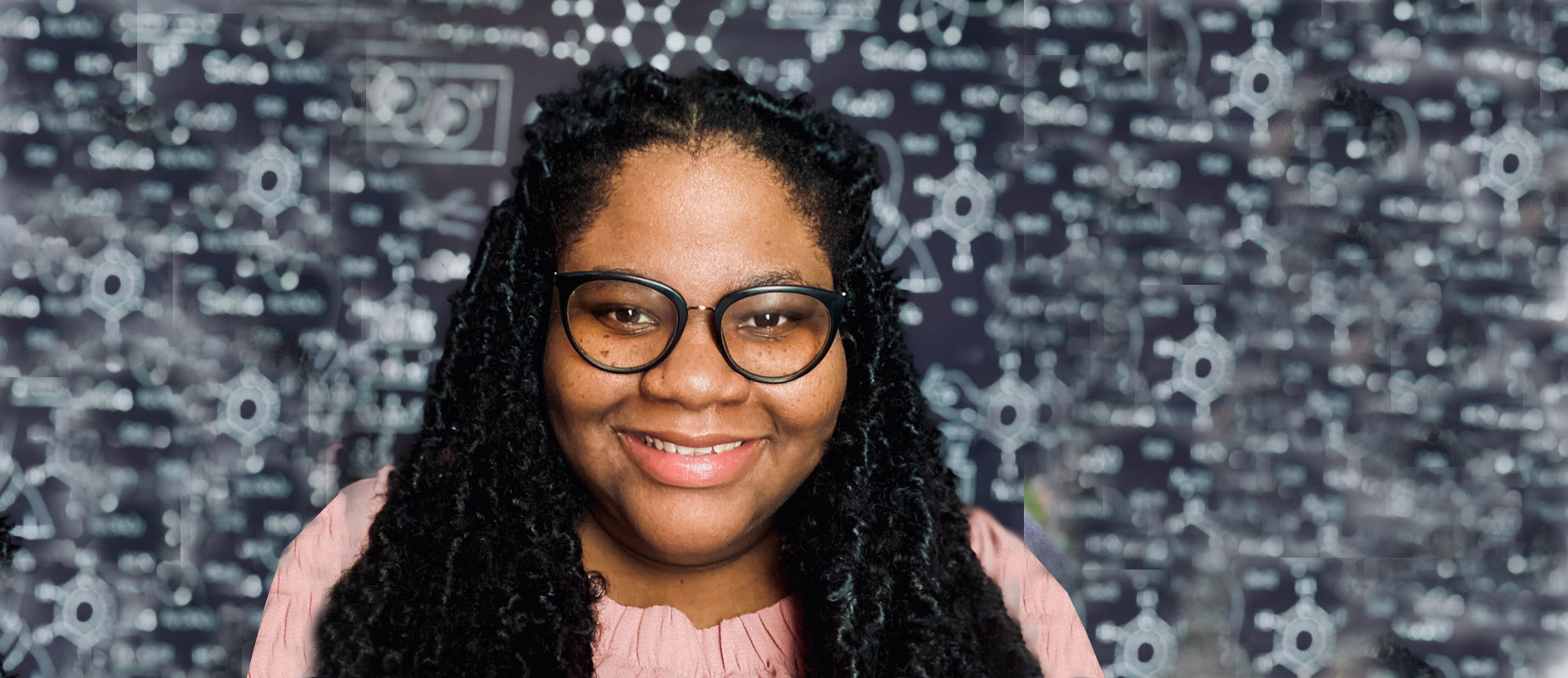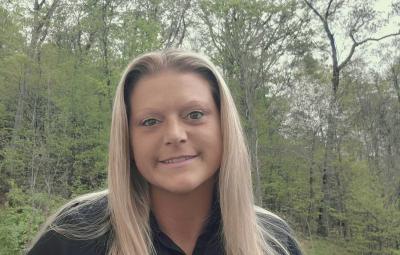
Keiann Simon ’21, a forensic science major, PRISM graduating senior, and self-described “science nerd” is preparing to transform the forensic science practices of an entire nation. After spreading her wings in PRISM, and officially being accepted into the University of Washington’s Pharmaceutics Ph.D. program, we have every confidence that she’ll do just that. “My plan is to go back home to Guyana and have an impact on the forensic science industry there and across the Caribbean by building on the forensic science systems they currently have in place,” she says. “It’s important that these countries have access to testing facilities, adequate equipment, and continuing education to ensure that those impacted by the criminal justice system are being treated fair and just.”
Growing up in Guyana, Simon saw the limitations of her country’s forensic resources through her mother’s eyes. Simon’s mother worked in the judicial system and often shared her struggles with her daughter. This problem set Simon on a path to finding the best Forensic Science program available. “Guyana does not have a lot of opportunities for higher education in forensic science. I remember researching criminal justice schools and I found John Jay College. I just fell in love with the school. I decided then and there that this is what I want to do with my life. This is where I want to get my Forensic Science degree.” Simon sat down with us to discuss her upbringing, her goals for the future, and how the John Jay community empowered her to pursue a Ph.D. in Pharmaceutics.
Developing a Love for Forensic Science
Ever since Simon was a young child, her mother made a point of eating breakfast and dinner with her as they shared what was happening in their lives. “She would tell me about her cases during those meals. It was frustrating for my mother because she would try a case and there wouldn’t be enough forensic evidence to convict a guilty person or release an innocent person, not because the evidence wasn’t there, but because the country didn’t have the facilities to test the forensic evidence,” says Simon. “People need to have a free and fair trial, but in Guyana we just didn’t have the manpower or the utilities to do so on time.”
Simon also witnessed how the country lacked resources firsthand. “I held various internships across different forensic departments in Guyana, and I remember during one internship being in a very small room in the criminal investigation department and they were doing simple chemistry procedures to confirm tests for cannabis and cocaine. They were doing their best given the resources that they had, but I knew that I wanted to learn more and needed a stronger foundation in forensic science.”
Coming to John Jay College
As she began the lengthy process of gaining American residency status in 2017, one of the biggest challenges Simon faced was waiting for the paperwork to be cleared. “I had to wait a year, involuntarily, to start school because I had to wait for my green card. By the time I applied to John Jay, they had already accepted their quota. I was disappointed but I was like, ‘Okay, what’s next?’” Thankfully, a pathway opened up for Simon through the CUNY Justice Academy (CJA) program. “An administrator told me about the dual program where you complete two years at a community college and then you automatically transfer into John Jay to finish the other two years. I said, ‘Perfect. I will do that.’ When I finally stepped into John Jay I was super excited. John Jay College has been a critical step for me to get on that path to forensic science reform in Guyana,” Simon says. “Without John Jay, I wouldn't be able to say, very soon, that I am a forensic scientist.”
Working with Her Mentor
At John Jay, Simon developed a love for research that blossomed under the guidance of her mentor, Martha Concheiro-Guisan, Ph.D., Assistant Professor of Toxicology. “It was super exciting for me to work with Dr. Concheiro-Guisan and learn about the role of forensics in toxicology and pharmacology. It was exciting because I was getting into the nitty-gritty of what I liked,” she says. Undergoing an intensive training period to work in Concheiro-Guisan’s lab, Simon was paired with an experienced student who could provide guidance. “The first project we worked on was detecting opioids in hair, and I was blown away by that research. I was like, ‘You can detect opioids in hair?’ And she said, ‘Yes.’’’ This moment confirmed for Simon that forensic science was more than just the right career path, it was her life’s passion. “What I love about forensic science is that it’s so integrated into everything. You have to know math. You have to know biology. You have to know physics. You have to know chemistry. For forensic toxicology, you have to know the body and how drugs move through the body. I am always working with at least four different branches of science at a time. That feeling is what I want to carry with me into grad school. Yes, I do want to improve systems and do administrative work, but I also love science.”
Pursuing a Ph.D. in Pharmaceutics
After graduating John Jay, Simon plans to pursue her doctorate. “I am going to be starting a Ph.D. program at the University of Washington where I’ll be studying pharmaceutics. People believe that pharmaceutics is far off from toxicology or forensic science, but it really isn’t,” says Simon, remarking that last November she wasn’t even aware of the existence of this educational route as a path to a toxicology career. “I thought that I needed to have a forensic science label to be a forensic toxicologist, but that’s not true. Pharmaceutics is a combination of pharmacology and toxicology. How drugs work, how they are distributed, and how they leave your body is super important when you deal with forensic toxicology cases, but I wasn’t fully aware of that.” Simon reached out to Concheiro-Guisan to make sure that she was making the most informed decision about her plans for graduate school. “She told me, ‘Keiann, I have a pharmacy degree. Pharmacy, pharmaceutics, and pharmacology are so integral in forensic toxicology. It makes you a better forensic toxicologist because you understand the science down to the core.’ I was shocked. She had other professionals working in the field of pharmacology and pharmaceutics explain to me the importance of this amazing opportunity.”



